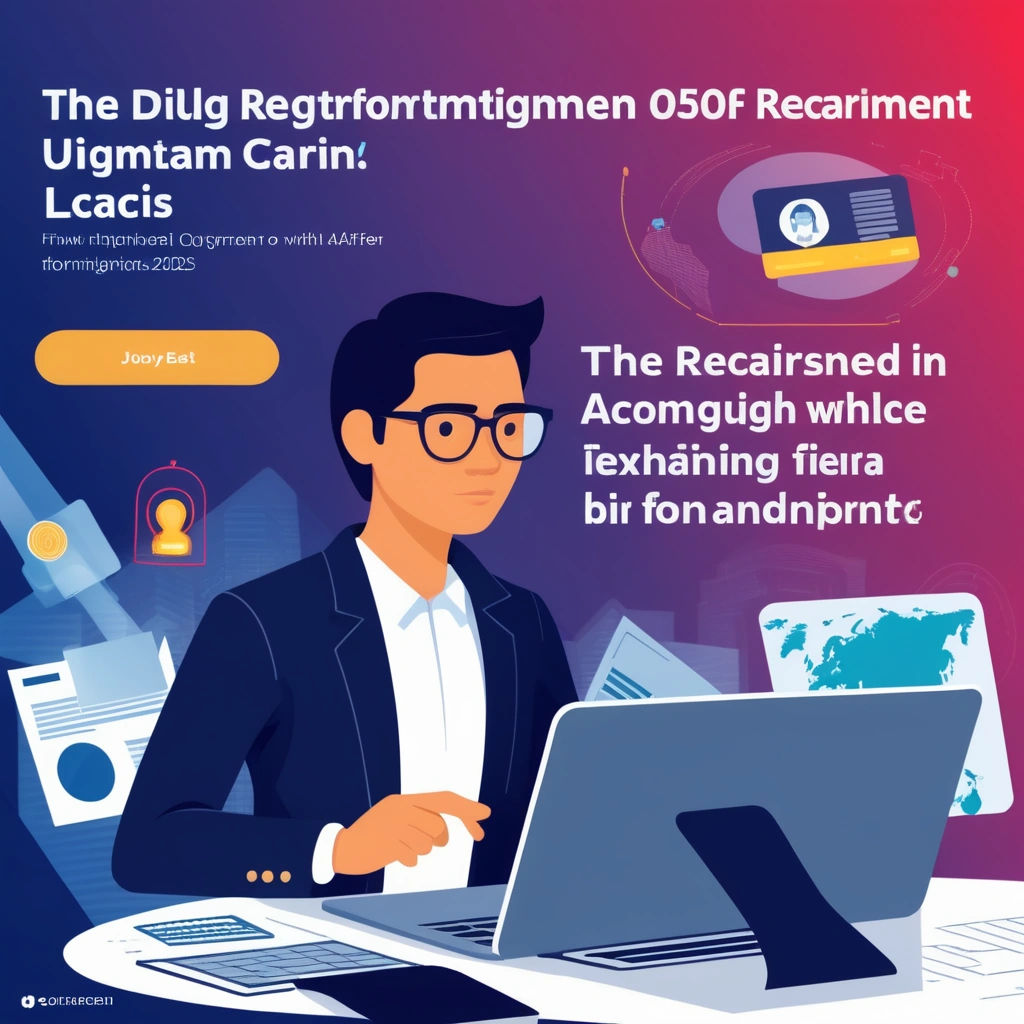The Digital Revolution in OFW Recruitment: How Technology is Reshaping Overseas Employment While Scammers Adapt Their Tactics (2025 Guide)
The overseas recruitment industry is undergoing its most dramatic transformation in decades, with digital platforms processing over $10 billion in payments annually while traditional agencies face unprecedented scrutiny following fraud scandals affecting 400,000 workers in Malaysia alone. For the 2.2 million Overseas Filipino Workers navigating this rapidly changing landscape, understanding both the opportunities and dangers of digital recruitment has become essential for safe and successful employment abroad. This comprehensive guide examines how technology is revolutionizing OFW recruitment, the new scams emerging in digital spaces, and the concrete steps workers must take to protect themselves while benefiting from these innovations.
The Promise: How Digital Platforms Are Transforming OFW Recruitment
Government Digital Initiatives Leading the Way
The Department of Migrant Workers’ groundbreaking digital transformation in 2024-2025 represents the most significant advancement in OFW protection in a generation. The DMW’s new whitelisting system now covers 432 verified recruitment agencies for Saudi Arabia and 183 for Kuwait, with mandatory “know your employer” video calls required before any contract signing. This system has already prevented thousands of cases of contract substitution, where workers arrive abroad to find completely different employment terms than promised.
Saudi Arabia’s Musaned platform has revolutionized domestic worker recruitment by reducing visa processing from weeks to just three days. Filipino domestic workers can now verify their employers directly through the platform, check contract details, and confirm that placement fees are being paid by employers as required by Saudi law. The platform processed over 85,000 Filipino worker applications in 2024, with complaint rates dropping by 60% compared to traditional recruitment methods.
The Philippine government’s new OFW Mobile App, launched in partnership with major banks, enables workers to report illegal recruitment in real-time, verify agency licenses instantly, and access emergency assistance with GPS location sharing. The app has already logged over 3,000 illegal recruitment reports in its first six months, leading to the closure of 14 establishments compared to just 7 in all of 2023.
Blockchain Technology Preventing Contract Substitution
The eMin platform, developed through a partnership between the International Organization for Migration and blockchain company Diginex, has demonstrated how technology can eliminate one of the most common forms of exploitation: contract substitution. Operating in Thailand’s manufacturing sector, the platform creates immutable records of employment contracts that cannot be altered after signing. Workers in factories supplying Nike, Adidas, and IKEA can now access their original contracts through smartphones, report discrepancies immediately, and receive support before problems escalate.
In a pilot program covering 130 Myanmar workers, the platform prevented 23 attempted contract substitutions and enabled real-time wage verification that identified underpayments within days rather than months. The system’s success has prompted expansion to Malaysia and Taiwan, where investigations revealed workers paying $5,000-6,600 in illegal recruitment fees despite regulations limiting charges to one month’s salary.
Fintech Platforms Reducing Remittance Costs and Recruitment Fees
Tazapay’s explosive growth to $10 billion in annual payment volume demonstrates how financial technology can reduce the traditional 7-10% remittance costs that extract billions from OFW earnings. The platform’s escrow services for recruitment fees ensure that agencies receive payment only after workers confirm safe arrival and contract compliance, eliminating the advance payment scams that trapped thousands of workers in debt bondage.
Digital payment verification has become particularly crucial following the Malaysia-Bangladesh scandal, where 400,000 workers paid $4,500-5,500 each for non-existent jobs. New platforms requiring biometric verification and employer confirmation before fee payment could have prevented this $1 billion fraud that devastated entire communities and led to Bangladesh’s suspension from Malaysian recruitment.
The Peril: How Scammers Are Exploiting Digital Channels
Social Media Recruitment Scams Proliferate
The shift to digital recruitment has created new vulnerabilities that sophisticated criminal networks exploit with devastating efficiency. Facebook groups promising “Direct Hiring to Canada” or “No Placement Fee USA Jobs” have proliferated, with the DMW identifying over 500 fraudulent recruitment pages in 2024 alone. These scammers use stolen photos of legitimate agencies, create fake video testimonials using AI deep-fake technology, and operate across multiple platforms to evade detection.
The case of Visa to America Manila, which collected P400,000-600,000 from teachers for non-existent US positions, demonstrates how digital legitimacy can mask traditional fraud. The company maintained professional websites, active social media presence, and even conducted online seminars with fake US school representatives. Only after 60 victims came forward did authorities discover the elaborate deception that included fabricated visa approvals and photoshopped placement confirmations.
WhatsApp and Telegram recruitment has become particularly dangerous, with encrypted messaging allowing scammers to operate without oversight. Indonesian authorities report that 80% of trafficking victims in 2024 had been recruited through messaging apps, where agents share photos of luxury accommodations and high salaries that bear no relationship to actual working conditions. The privacy these platforms provide makes it nearly impossible for authorities to track illegal recruiters until after victims have been exploited.
Deepfake Technology and AI-Generated Job Offers
The emergence of deepfake technology has added a terrifying new dimension to recruitment fraud. Scammers now create videos of fake employers conducting interviews, complete with office backgrounds and corporate logos that appear entirely legitimate. In one case affecting 45 Filipino nurses, scammers used AI to generate video calls with supposed German hospital administrators, complete with accented English and medical terminology that convinced even experienced healthcare workers.
AI-generated documentation has become so sophisticated that workers cannot distinguish fake contracts from real ones. These documents include watermarks, digital signatures, and QR codes that link to professional-looking websites that exist solely to deceive workers into paying placement fees. The technology allows scammers to personalize fraud at scale, creating unique documentation for each victim that references their specific qualifications and includes details scraped from their social media profiles.
Cryptocurrency and Digital Payment Fraud
The rise of cryptocurrency in recruitment payments has created an irreversible payment method that scammers exploit mercilessly. Workers are increasingly asked to pay placement fees in Bitcoin or other cryptocurrencies, told this will reduce transaction costs and speed up processing. Once payments are made, they cannot be recovered, and the anonymous nature of cryptocurrency transactions makes it impossible to track perpetrators.
Digital wallet scams have become endemic in Southeast Asia, with fraudsters creating apps that mimic legitimate services like GCash or Maya. These fake apps steal not just placement fees but also personal information used for identity theft and additional fraud. Workers discover too late that the professional-looking app they downloaded from a recruiter’s link has drained their savings and compromised their financial identity.
Protection Strategies: Navigating Digital Recruitment Safely
Verification Protocols Every OFW Must Follow
Before engaging with any digital recruitment platform, workers must complete a comprehensive verification process that has become non-negotiable in the current threat environment. First, verify the agency’s license through the DMW online portal, checking not just current validity but also any history of complaints or sanctions. The portal now includes a “red flag” system that highlights agencies under investigation or with patterns of worker complaints.
Second, demand video verification of employers through official platforms like Saudi Arabia’s Musaned or the DMW’s employer verification system. Legitimate employers will already be registered in these systems and can provide verification codes that workers can independently confirm. Any employer refusing to provide official verification or insisting on alternative platforms should be immediately rejected regardless of how attractive the offer appears.
Third, use reverse image searches on all documentation and photos provided by recruiters. Scammers frequently steal images from legitimate agencies and employers, but reverse image searches can reveal when photos appear on multiple websites or have been used in previous scams. This simple step has helped workers identify hundreds of fraudulent job postings that seemed entirely legitimate.
Digital Documentation Best Practices
Creating an unalterable digital trail has become essential for protecting against contract substitution and fee disputes. Workers should use blockchain-based documentation platforms when available, as these create permanent records that cannot be disputed or altered. For traditional documentation, workers should email copies to themselves using major providers like Gmail that timestamp and preserve messages, creating legal evidence of original agreements.
Screen recording during all digital interactions with recruiters provides crucial evidence if disputes arise. Workers should record all video calls, online contract signings, and payment processes, storing these recordings in multiple cloud services to prevent loss. Philippine courts have begun accepting these digital recordings as evidence in illegal recruitment cases, making them powerful tools for seeking justice.
The practice of “documentation sharing” within OFW communities has proven particularly effective. Workers create shared Google Drives where they upload contracts and correspondence from agencies, allowing others to verify if similar documents have been used in scams. This collective intelligence system has identified patterns in fraudulent documentation that individual workers might miss.
Financial Protection in Digital Transactions
Never pay recruitment fees through methods that cannot be reversed or traced. Legitimate agencies accept payments through banks or licensed payment providers that offer dispute resolution. Any insistence on cryptocurrency, wire transfers to personal accounts, or cash payments should immediately disqualify an agency regardless of their explanations about convenience or cost savings.
Use escrow services whenever possible for placement fees, ensuring that agencies receive payment only after workers confirm safe arrival and contract compliance. Services like Tazapay and other licensed escrow providers add minimal cost while providing crucial protection against fraud. Workers who used escrow services in 2024 recovered 89% of disputed fees, compared to less than 5% recovery rate for direct payments.
Maintain separate digital wallets for recruitment-related transactions, limiting potential losses if credentials are compromised. Load only the amount needed for specific transactions, and never provide wallet credentials to recruiters who claim to need them for “verification” or “processing.” This compartmentalization strategy has prevented thousands of workers from losing their entire savings to digital wallet fraud.
Government Resources and Support Systems
DMW’s Digital Support Infrastructure
The Department of Migrant Workers has established a 24/7 digital response system that every OFW should save in their phones before departure. The DMW Hotline (1348) now includes WhatsApp and Telegram support, allowing workers to report problems through messaging when voice calls aren’t possible. Response times average under 30 minutes for emergency situations, with AI-powered initial assessment ensuring critical cases receive immediate human attention.
The OFW E-Card system launched in 2025 provides digital identity verification that prevents identity theft and enables instant access to government services. Workers can use the E-Card to verify their status with employers, access emergency repatriation services, and prove their eligibility for government benefits. The card’s biometric features have already prevented over 1,000 cases of identity fraud where scammers attempted to use stolen OFW credentials.
Regional DMW offices now offer virtual assistance through video calls, eliminating the need for workers to travel to physical offices for many services. This digital transformation has been particularly valuable for workers in provinces, who can now access the same level of support as those in Metro Manila. The system handled over 50,000 virtual consultations in its first year, with satisfaction rates exceeding 85%.
International Digital Protection Networks
The ASEAN Digital Work Permit system, launching in phases through 2025, will create a regional database of verified workers and employers that dramatically reduces fraud opportunities. Workers will receive digital permits readable across all ASEAN countries, with real-time verification preventing the document forgery that enabled countless scams. The Philippines is among the first countries to fully implement the system, with over 100,000 workers already registered.
Bilateral digital agreements with host countries have created new protection mechanisms that operate automatically without worker intervention. The Philippines-Saudi Digital Labor Agreement requires all salary payments to pass through monitored banking channels that flag underpayments or illegal deductions. Workers no longer need to file complaints about wage theft; the system automatically identifies violations and initiates investigation procedures.
Global union networks have developed digital solidarity systems that provide immediate support to workers regardless of location. The Building and Wood Workers’ International app connects construction workers with local union representatives who can provide emergency assistance, legal support, and evacuation help. The network has assisted over 5,000 Filipino workers since launching, including many who faced exploitation on Saudi Arabia’s Vision 2030 projects.
Future Trends: What OFWs Need to Prepare For
AI-Powered Recruitment Matching
By 2026, artificial intelligence is expected to handle 90% of initial job matching for overseas workers, fundamentally changing how OFWs find employment. These systems will analyze worker qualifications, preferences, and even personality assessments to identify optimal placements, potentially eliminating the traditional agency model entirely. Workers need to begin building comprehensive digital profiles now, ensuring their online presence accurately reflects their skills and experience.
The shift to AI matching will require workers to understand how algorithms evaluate candidates. Skills that are easily verifiable through digital credentials will become more valuable than traditional recommendations. Workers should prioritize obtaining internationally recognized digital certifications and maintaining updated profiles on professional platforms like LinkedIn that AI systems scan for candidates.
However, AI matching also introduces new risks of algorithmic discrimination and reduced human judgment in placement decisions. Workers must learn to identify when AI systems are making unfair assessments and maintain the ability to bypass automated systems when necessary. The human element in recruitment, while reduced, will become more crucial for complex situations requiring cultural understanding and emotional intelligence.
Virtual Reality Training and Orientation
Virtual reality platforms will soon allow workers to experience their future workplaces before leaving the Philippines, revolutionizing pre-departure orientation. Workers will walk through actual facilities, practice job tasks, and interact with virtual colleagues, identifying potential problems before committing to contracts. This technology could eliminate the devastating surprise many workers face when actual conditions don’t match recruitment promises.
The UAE has already begun requiring VR orientation for construction workers, reducing workplace accidents by 40% and contract disputes by 60%. Filipino workers should begin familiarizing themselves with VR technology now, as comfort with these systems will become a competitive advantage in recruitment. Community centers and DMW offices are beginning to offer VR training sessions that workers should take advantage of.
Investment in basic VR equipment may become necessary for workers to remain competitive in digital recruitment. While current costs remain high, shared VR centers in OFW communities could provide affordable access to this transformative technology. Workers who embrace VR training early will be better positioned as the technology becomes mandatory for certain positions.
Decentralized Autonomous Organizations for Worker Protection
Blockchain-based worker cooperatives are emerging as an alternative to traditional recruitment agencies, with workers collectively owning and operating placement services. These Decentralized Autonomous Organizations (DAOs) use smart contracts to ensure fair fee distribution and prevent exploitation by eliminating intermediary profit extraction. Early experiments in the Philippines have shown promise, with worker-owned cooperatives charging 70% less than traditional agencies while providing better support services.
The technology allows workers to vote on cooperative policies, verify financial transparency, and share in profits that would traditionally go to agency owners. Workers contributing to cooperative success through referrals or support services receive cryptocurrency tokens that appreciate in value as the cooperative grows. This model could fundamentally reshape power dynamics in recruitment, giving workers control over their own placement processes.
Participation in these cooperatives requires digital literacy and initial investment that may challenge some workers. However, the potential for long-term savings and improved treatment makes understanding these systems crucial for future OFWs. Government support for worker cooperatives is growing, with proposed legislation that would provide startup funding and technical assistance for OFW-owned recruitment DAOs.
Conclusion
The digital transformation of OFW recruitment presents both unprecedented opportunities for worker empowerment and sophisticated new threats that require constant vigilance. While technology has enabled faster processing, lower costs, and better protection mechanisms, it has also provided scammers with powerful tools for exploitation at scale. The difference between successful overseas employment and devastating fraud increasingly depends on digital literacy and awareness of rapidly evolving threats.
For the 2.2 million OFWs whose remittances sustain millions of Filipino families, mastering digital recruitment tools is no longer optional but essential for survival in an increasingly complex employment landscape. The workers who thrive will be those who embrace technological advancement while maintaining healthy skepticism, verify everything through official channels, and build strong digital support networks before problems arise.
The future of OFW recruitment will be determined by whether workers can collectively harness technology’s benefits while protecting themselves from its dangers. This requires not just individual awareness but community solidarity, government support, and constant adaptation to emerging threats. As the industry undergoes its most dramatic transformation in history, OFWs must position themselves not as passive victims of change but as active participants in shaping a more equitable and transparent recruitment system.
The path forward demands that every OFW become digitally empowered, financially literate, and internationally connected. Those who master these skills will find unprecedented opportunities for safe, profitable overseas employment. Those who don’t risk joining the hundreds of thousands already victimized by recruitment fraud. The choice, and the responsibility for making it, rests with each worker preparing for their overseas journey.


